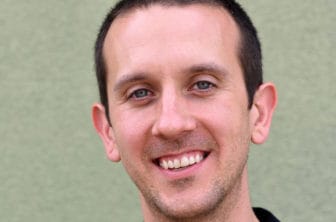COMMENTARY: “All around the world, children want to go to school, to walk in their towns and cities, to play outside, and to share food with their families,” states a book I bought my 4-year-old daughter recently. “They want to do these things and feel safe.”

Heath Haussamen
That book is on my mind as I process last week’s attacks by Islamic State extremists in Beirut and Paris.
Both cities were homes to my ancestors.
Also on my mind are Americans who spread hatred of Muslims. On Veteran’s Day a fairly prominent Las Crucen posted video on Facebook of an Islamic extremist being killed, along with this comment: “One less Muslim makes the world a better place!”
With 4,600 “friends” on Facebook, I regularly see posts that encourage hate, discrimination, and sometimes violence. Another Las Crucen posted recently that Islam isn’t welcome in the United States — even though our nation guarantees everyone the freedom to assemble and worship as they see fit.
On some level, these Las Crucens live with the same fear and hatred that leads some to join Islamic State.
In the interest of not spreading hate any further, I won’t name these Las Crucens. Instead, I want to discuss neighbors.
When asked who are our neighbors, Jesus told a story: After Jewish leaders ignored a Jew who was beaten, robbed, and injured by the side of the road, a Samaritan stopped to care for him. Following hundreds of years of bitterness and division between Jews and Samaritans, Jesus told Jews to act like the Samaritan, not their own leaders.
His words were radical. And right.
Islam’s Prophet Muhammad said our neighbors live in the 40 houses around us in each direction. Muslims are called to help their neighbors if asked, he said. In a recent commentary in Qatar’s daily newspaper, Idris Tawfi wrote, “the Muslim community has a duty to care for all the people in the town, whether they are Muslim or not.”
In college I interacted with Muslims from other countries. Most were warm and kind. Muslims joined public interfaith discussions in Las Cruces after the Sept. 11, 2001 terrorist attacks to build understanding and find a way forward.
Muslims living in Las Cruces showed up to an interfaith service this August to pray with their neighbors after bombs exploded at two Christian churches.
And I recently listened to a Muslim woman who lives in Las Cruces share Muhammad’s words about neighbors. She urged the community to care for marginalized people including immigrants, juvenile detainees, and the mentally ill.
These are our neighbors – and they’re acting like it.
Americans have often let hatred and fear lead to discrimination and violence. For example, the United States imprisoned the father of Las Cruces Mayor Ken Miyagishima in a Japanese interment camp during World War II. Mike K. Miyagishima was only a child, between 11 and 15, while in captivity.
Such discrimination is counter to the ideals so many men and women serving in the U.S. military – including Muslims and Japanese Americans – have fought and died to protect.
“We all want peace,” my daughter’s book states. I’m not convinced that’s true about Islamic State. But I have known true Muslims who value and work for peace and healing.
Rather than treating Muslims in our communities like the Islamic equivalent of our own Klu Klux Klan – and repeating our past mistakes yet again – we should join our neighbors in working toward a more peaceful and prosperous world for all.
